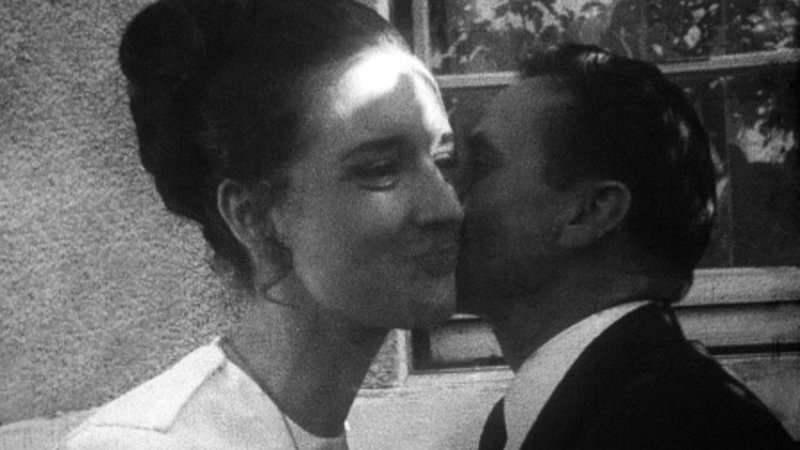
Screened as part of NZIFF 2002
La Rosière de Pessac 1968
The Virgin of Pessac
"In 1968, [Eustache] filmed an annual ceremony in his home-town known as La Rosière de Pessac, in which one young woman is chosen by the mayor and other prominent locals as the town’s most virtuous, a title she claims until next year’s event. Eleven years later, he returned to film the same ceremony. Both documentaries approach the subject with the same spirit of inclusiveness and generosity that gives Le Cochon its grace and beauty, but these are talkier films and funnier ones, and it’s very much to their credit that they aren’t content to mock the ceremony. There’s certainly an element of absurdity, of provincial comedy, here that’s missing from Le Cochon… It’s easy to laugh at the old-fashioned values being propagated or to cringe at the fact that the girl herself is barely allowed to speak during the proceedings. But Eustache concentrates on the lightheartedness of the celebration, the humor and even at times the self-awareness shown by the mayor and the other town members, the young women’s understanding of the ritual’s significance, and, above all, the social importance of this kind of annual, communal ritual. Eustache gets a lot of mileage out of the implied contrast between the conservative nature of the ceremony and the upheaval going on in France at the same time. But far from making easy points at the expense of the people on screen, he devotes a long section of the film to the pastor’s liberal, frank, and articulate speech marking the beginning of the ceremony, a speech which not only acknowledges but fully engages with the events in Paris and unambiguously praises the students. What’s on screen is not a contrast between old-fashioned, traditional values and political perceptiveness and open-mindedness, but a particularly graceful meeting of the two.
The film ends with a short speech by the oldest living former Rosière de Pessac, who begins by matter-of-factly declaring, ‘I think this year is my last among you because, Mr Mayor, I am 92 years old,’ her words evoking the importance of the ceremony and the profound sense of continuity it provides through its linking of the past, present, and future… Without ignoring all that is dubious about this ceremony, Eustache refuses to ignore how effectively it binds the community, or how intuitively all the participants, both the active (the town leaders) and the passive (the girls themselves), seem to recognize this and to enjoy playing their part." — Jared Rapfogel, Senses of Cinema